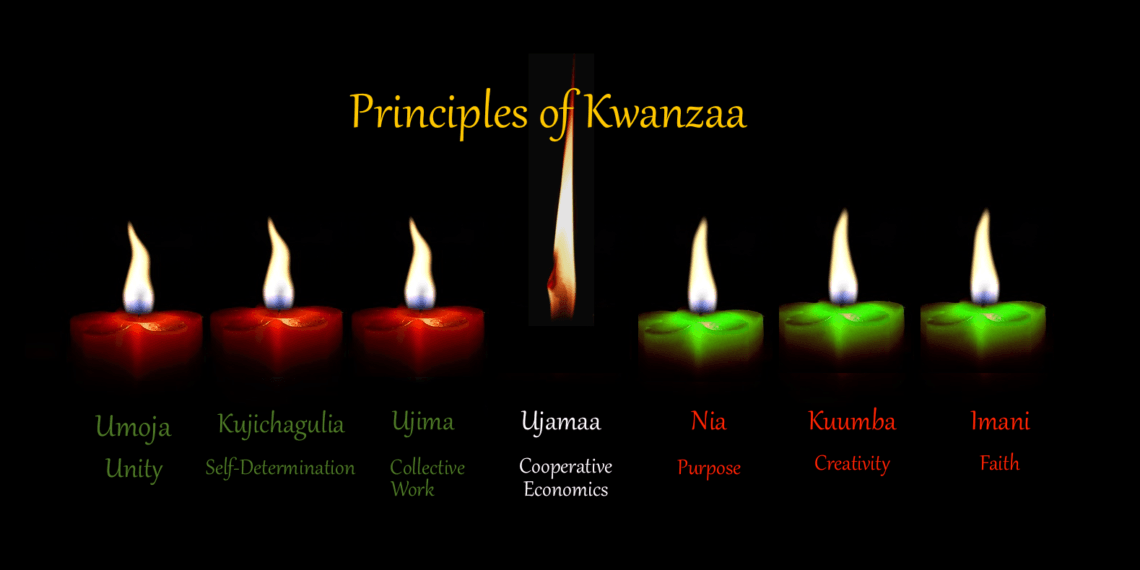
- This event has passed.
First Day of Kwanzaa
Kwanzaa is a week-long celebration held in the United States and in other nations of the Western African diaspora in the Americas. The celebration honors African heritage in African-American culture, and is observed from December 26 to January 1, culminating in a feast and gift-giving.
It was created by Maulana Karenga, and was first celebrated in 1966. Dr. Karenga researched African harvest celebrations and combined aspects of several different celebrations, such as those of the Ashanti and the Zulu, to form the foundation of Kwanzaa.
The name Kwanzaa is derived from the phrase matunda ya kwanza which means first fruits, or harvest, in Swahili. Celebrations often include singing and dancing, storytelling, poetry reading, African drumming, and feasting.
Kwanzaa has seven core principles (Nguzo Saba):
1. Umoja: Unity
To strive for and maintain unity in the family, community, nation, and race.
2. Kujichagulia: Self-Determination:
To define ourselves, name ourselves, create for ourselves, and speak for ourselves.
3. Ujima: Collective Work and Responsibility
To build and maintain our community together and make our brothers’ and sisters’ problems our problems and solve them together.
4. Ujamaa: Cooperative Economics
To build and maintain our own stores, shops, and other businesses and to profit from them together.
5. Nia: Purpose
To make our collective vocation the building and developing of our community in order to restore our people to their traditional greatness.
6. Kuumba: Creativity
To do always as much as we can, in the way we can, in order to leave our community more beautiful and beneficial than we inherited it.
7. Imani: Faith
To believe with all our heart in our people, our parents, our teachers, our leaders, and the righteousness and victory of our struggle.

